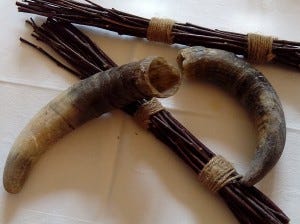Load of old bull - does biodynamics need to explain itself?

"When I taste this wine, I imagine I'm walking up the dry river bed next to the Tatou vineyard, just after the rain. The smell of the wet stones is utterly distinctive."
This is the way that Colin Ross, vineyard manager at Seresin, likes to describe wine - no fruit descriptors, no talk of tannins, structure or pH. During a leisurely tasting at Michael Se…
Keep reading with a 7-day free trial
Subscribe to The Morning Claret to keep reading this post and get 7 days of free access to the full post archives.



